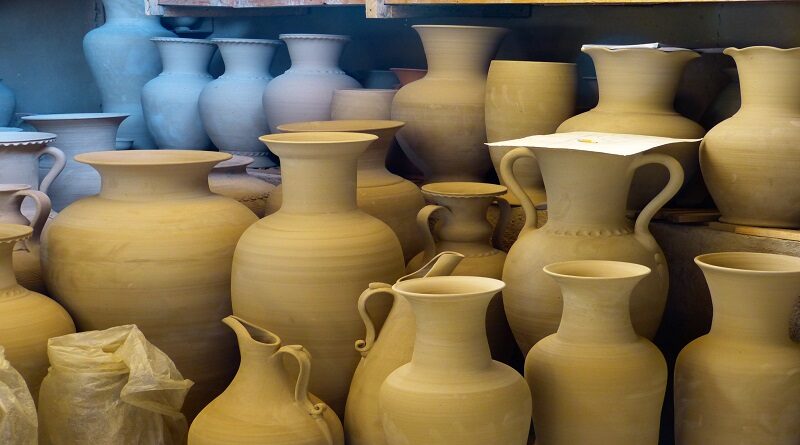Glass, Ceramics and Stone Crafts
Working with glass, ceramics and stone takes quite a lot of creativity and precision and patience. There are a few courses available to those who may feel they want to specialise in their specific area and perfect their trade.
Are you patient? Pay attention to detail and looking to be the best you can be? Then stick around, we hope we can help!
What is glass, ceramics and stone crafts?
As you guessed, the area of glass, ceramics and stone craft involved creating and designing products and items out of all three materials. Many designs made from glass, ceramics and stone can be quite inspiring, be passed down through families as pieces of meaning and be keepsakes as well as designs for show.
What work is involved?
There is different work involved depending on whether you are working with glass, ceramics or stone. For the most part you will create designs, cut, shape and work with the material of your choice, in this case, glass, ceramics or stone. You will use hand tools and equipment in order to help you create the desired design to produce high quality visual art.
Many in this area work as freelancers while there is also the opportunity to work with companies and businesses.
Courses
There are many courses on offer in the area across the UK. Some courses offer the opportunity to study either part time or full time. Universities may have certain restrictions in place due to Covid-19 and may offer courses online. Some examples of courses on offer include:
Design (Ceramics)
Postgraduate courses in this area will allow students to develop their skills of working with ceramics even further than before. Students will learn a range of different approaches to ceramics at a high level. Through different workshops and a mixture of both historical and contemporary theory and practice, students will deepen their knowledge of the area and also while also developing their skills and abilities as well as their critical thinking and writing skills.
Glass
There are a few postgraduate courses available in the area of Glass craft. Those who study a course like this will learn about the different properties glass can offer as well as learn about the newest advancements in glass technology. Other key focuses in these courses include exploring new possibilities and knowledge of what glass has to offer and develop new skills and approaches to working with glass. Modules include collaborative dialogues, coexistent perspectives, explorative research and praxis and confirmative praxis. Course material may differ from course to course.
Ceramics, Glasses and Polymers
In this postgraduate course, students will carry out extensive study in relevant areas related to ceramics, glass and polymers while taking on a lot of independent work producing different creations. You will closely examine the three areas and their applications while conducting experiments in the area. There is often the opportunity to study abroad on some courses in this area also.
There are also courses available in Design and Applied Arts, Coatings and Ceramics, Ceramics and Arts, Stained Glass Conservations and Heritage Management and a number of courses under the heading of Ceramics which may differ in content from course to course.
Entry requirements
Entry requirements may differ from course to course or university to university. Therefore, it is important to research your specific course in detail to ensure you meet the entry requirements. As these courses are postgraduate courses, you will need a bachelor’s degree. Some courses accept a 2.2 degree while others require a 2.1 degree in a related field.
Salary
Your salary may be dependent on your experience and expertise as well as your location and exact employment type. It is believed that the salary of a glass designer may start out around £16,000 and with experience may rise to around £35,000 at senior status. As a stone carver you may earn close to £27,000 annually. As a ceramic crafter/designer it is believed you may over £30,000 yearly with experience.
Skills and requirements
Skills and requirements important in this area include:
- Strong communication skills
- Ability to use tools
- Creative
- Patient
- Pay attention to detail
- Artistic
- Persistent
- Hard working
- Self motivated
- Time management skills
- Flexible
- Organisation skills
- Focused
- Adaptable
- Negotiation skills




